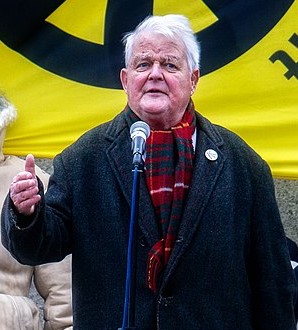Militarisation of Europe - peace movement needed more than ever
|
By Arthur West
A PEACEFUL WORLD |
Perhaps one of the tasks which could be remitted to the OSCE could be to set up a Europe wide consultation to begin the difficult task of drawing up a new common security framework for the whole of Europe. This might seem unlikely given the current unimaginative and narrow positions being adopted by political parties across Europe in relation to building a peaceful and stable world.
The tragic war in Ukraine and the continuing conflicts in places such as Palestine, Yemen and Western Sahara makes the world a depressing place. According to Amnesty International there at least 26 million refugees in the world fleeing war, climate change and poverty. This is why it is necessary for the Peace Movement not only to campaign on issues such as nuclear weapons and increased military spending - it must provide ideas for resolving conflicts without recourse to violence and war.
Movement for the Abolition War (MAW) which was founded in 2001 and whose first chair was legendary Peace Campaigner Bruce Kent says that security for people should be understood in holistic terms of human and planetary well-being. The organisation seeks to persuade governments and organisations to diversify from arms manufacture and military spending towards peaceful technologies and away from the use of wars to resolve conflicts and tensions between nations. It seems to me that organisations like Movement for the Abolition of War and the wider Peace Movement are currently needed more than ever.
It is about time more politicians followed the example of former Labour Party leader Jeremy Corbyn and started making deep and meaningful links with the Peace Movement across the UK
Arthur West is former chair of Scottish CND and member of the Movement for the Abolition of War.

Peace campaigner Bruce Kent - photo by Garry Knight






